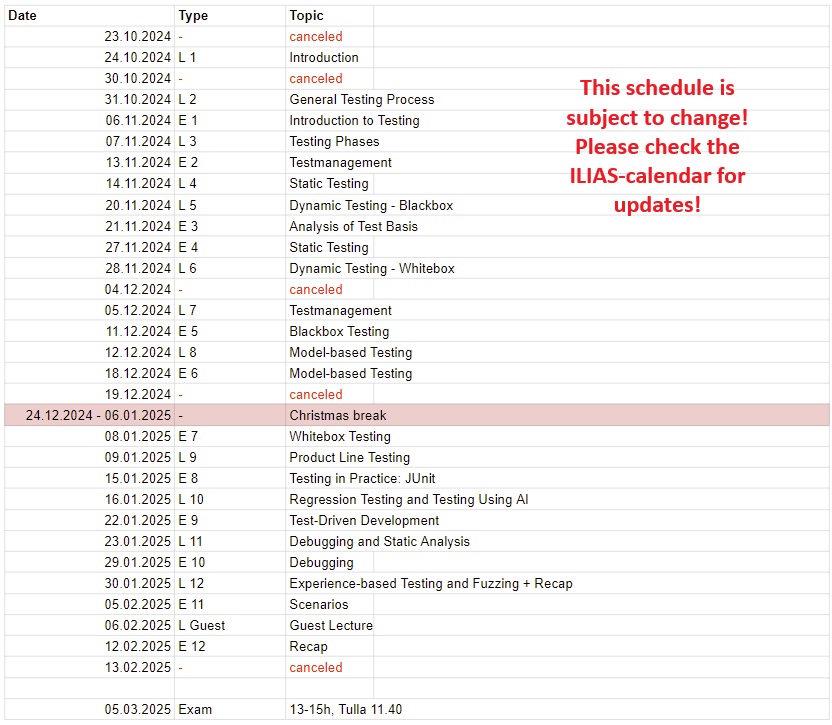Software test and quality management (SQM)
- Type: Lecture + Exercise (LE)
- Chair: KIT-Fakultäten - KIT-Fakultät für Informatik - KASTEL – Institut für Informationssicherheit und Verlässlichkeit - KASTEL Schaefer
- Semester: WS 24/25
-
Place:
50.34 Room -119
-
Time:
Wednesdays 09:45-11:15h, weekly
Thursdays 14:00-15:30h, weekly
Changes of the plan will be announced in the ILIAS-course!

- Start: Oct 24, 2024
-
Lecturer:
Prof. Dr.-Ing. Ina Schaefer
Asmae Heydari Tabar
Maximilian Kodetzki
- SWS: 2
- Lv-No.: 2400112
-
Information:
This semester, this lecture is given in English!
| Contents |
1. Basics (introduction, definition of terms, principles of SW testing, fundamental test process, psychology of testing) 2. Testing in the software life cycle (general V-model, component test, integration test, system test, acceptance test, testing of new product versions, overview of test types) 3. Static testing (structured group tests, static analyses, metrics) 4. Dynamic testing (black-box procedure, white-box procedure, experience-based test case determination) 5. Test management (test organization and planning, economic aspects, test strategy, management of test work, error management, requirements for configuration management). 6. Test tools (types, selection, introduction) 7. Modern test procedures (model-based testing, regression testing, testing of variant-rich systems) 8. Debugging |
| Lecture language | English |
| References |
Andreas Spillner, and Tilo Linz. Basic knowledge of software testing: Education and Training for the Certified Tester Foundation Level according to ISTQB Standard. dpunkt-Verlag, 2019. Helmut Balzert, and Christof Ebert. Textbook of software engineering. Spektrum, Akad. Verlag, 1996. v.a. Volume 2. Martin Pol, Tim Koomen, and Andreas Spillner. Management and Optimization of the Test Process: A Practical Guide for Successful Software Testing with TPI® and TMap®. dpunkt-Verlag, 2002. Georg Erwin Thaller. Software Testing: Verification and Validation. Heise, 2002. |
| Organizational matters |
At the end of the lecture there is also the possibility to be certified as "ISTQB - Certified Tester - Foundation Level". A corresponding date and the modalities for the examination will be agreed in the exercise in the course of the semester.
|

